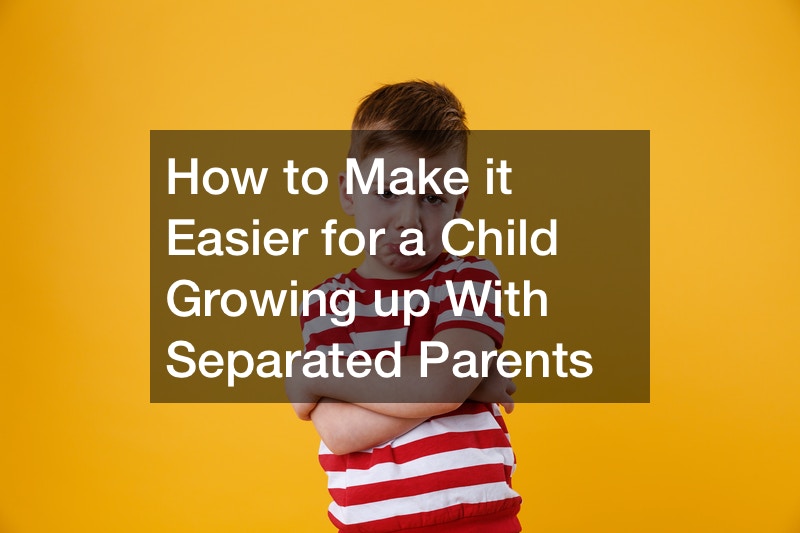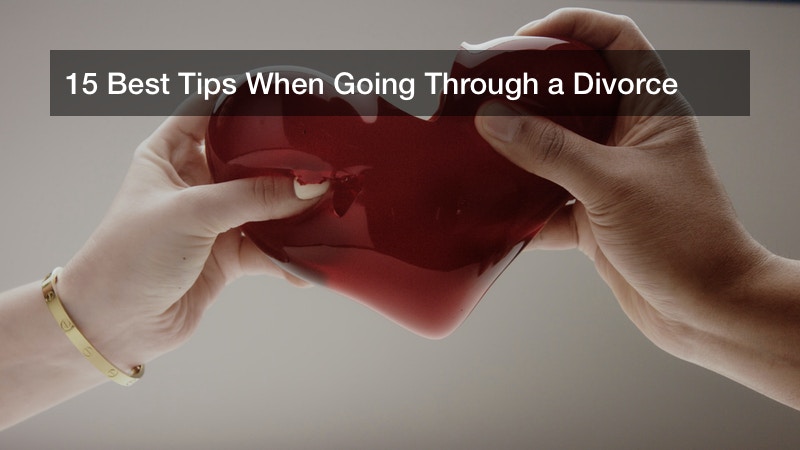
Divorce is one of the most challenging life transitions, impacting both your physical and mental health. As you navigate this significant change, it’s crucial to prioritize self-care. Here’s a breakdown of how divorce impacts one’s health as well as 11 comprehensive tips to help you care for your physical and mental health after divorce.

How Divorce Can Affect Your Health
Divorce is often regarded as one of the most stressful life events, and its impact on health can be profound. This significant life change can affect both your physical and mental well-being in various ways. Understanding these effects is crucial for addressing them effectively and maintaining your overall health during this challenging period.
Physical Health Impacts
- Immune System Weakening: The stress associated with divorce can weaken your immune system, making you more susceptible to illnesses. Chronic stress releases cortisol and other stress hormones, which can impair immune function over time. This can lead to increased frequency of colds, infections, and other health issues.
- Changes in Eating Habits: Divorce can disrupt your regular eating patterns. Some people might lose their appetite and unintentionally lose weight, while others may turn to comfort foods, leading to weight gain and poor nutrition. Both extremes can have detrimental effects on your health, including malnutrition or obesity-related problems.
- Sleep Disruptions: Stress and anxiety related to divorce can significantly impact your sleep quality. Insomnia or poor sleep can result in fatigue, decreased cognitive function, and weakened immunity. Long-term sleep deprivation is also linked to more severe health issues like cardiovascular disease and diabetes. You may speak to your doctor about medical marijuana and how it could help with your anxiety and insomnia.
Mental Health Impacts
- Increased Anxiety and Depression: Divorce is a major life stressor that can lead to increased levels of anxiety and depression. The emotional turmoil of ending a significant relationship can trigger feelings of sadness, hopelessness, and severe anxiety, which can persist for an extended period.
- Lowered Self-Esteem: The end of a marriage can cause a significant blow to self-esteem and self-worth. Feelings of rejection, failure, and inadequacy are common, which can contribute to long-term mental health struggles if not addressed.
- Social Isolation: Divorce often leads to changes in social circles and can result in feelings of isolation. Losing mutual friends or the support network you had as a couple can exacerbate feelings of loneliness and contribute to mental health issues like depression.
Coping Strategies
To mitigate these health impacts, it’s crucial to adopt coping strategies that promote both physical and mental well-being. Regular exercise, a balanced diet, and adequate sleep are fundamental. Seeking professional help, such as mental health therapy, can provide valuable support and coping mechanisms. Additionally, maintaining social connections and engaging in activities you enjoy can help rebuild your self-esteem and reduce feelings of isolation.
Let’s dive into 11 important tips for caring for your physical and mental health after divorce.
1. Embrace a Balanced Diet
Fueling Your Body After a divorce, it’s easy to fall into unhealthy eating habits due to stress or a busy schedule. However, maintaining a balanced diet is essential for your physical and mental health after divorce. Aim to eat a variety of nutrient-dense foods, including fruits, vegetables, lean proteins, and whole grains.
Meal Planning and Preparation Planning and preparing your meals in advance can help you avoid impulsive eating. Consider setting aside a day each week to prepare healthy meals and snacks. This practice not only ensures you have nutritious options available but also saves time and reduces stress.
Hydration Staying hydrated is equally important. Water plays a crucial role in your overall well-being, aiding digestion, circulation, and temperature regulation. Aim for at least eight glasses of water a day, and try to limit sugary drinks and caffeine.

2. Incorporate Regular Exercise
Physical Benefits Exercise is a powerful tool for maintaining physical health. It helps to strengthen your cardiovascular system, improve muscle tone, and increase flexibility. Regular physical activity can also boost your immune system, helping you fend off illnesses.
Mental Health Benefits The benefits of exercise extend to your mental health after divorce as well. Physical activity releases endorphins, which are natural mood lifters. Regular exercise can help reduce symptoms of depression and anxiety, improve sleep, and increase overall feelings of well-being.
Finding an Enjoyable Activity The key to maintaining a regular exercise routine is finding activities you enjoy. Whether it’s yoga, running, swimming, or dancing, choose something that you look forward to. You can also mix things up to keep it interesting and prevent boredom.
3. Prioritize Sleep
Establishing a Routine A good night’s sleep is essential for both physical and mental health after divorce. Establishing a regular sleep routine can help you get the rest you need. Try to go to bed and wake up at the same time every day, even on weekends.
Creating a Sleep-Friendly Environment Make your bedroom a haven for sleep. Keep it cool, quiet, and dark. Invest in a comfortable mattress and pillows, and limit screen time before bed to reduce exposure to blue light, which can interfere with sleep.
Relaxation Techniques If you have trouble falling asleep, consider incorporating relaxation techniques into your bedtime routine. Practices such as deep breathing, meditation, or gentle stretching can help calm your mind and prepare your body for rest. If you find yourself grinding your teeth, be sure to see your dentist for support.

4. Seek Professional Support
Therapy and Counseling Divorce is a significant emotional upheaval, and seeking professional support can be incredibly beneficial. A therapist or counselor can help you process your feelings, develop coping strategies, and navigate the challenges of post-divorce life. Check in with your insurance company to see how healthcare medical billing will work for your mental health therapy sessions.
Support Groups Support groups offer a sense of community and understanding. Connecting with others who are going through similar experiences can provide comfort and reduce feelings of isolation. Look for local or online support groups for divorced women. Your divorce attorney may have some options to share with you.
Life Coaching In addition to telemedicine therapy, you might consider working with a life coach. Life coaches can help you set and achieve personal goals, develop new skills, and create a vision for your future. They can offer practical advice and motivation to help you move forward.
5. Nurture Your Social Connections
Maintaining Friendships Strong social connections are vital for mental health after divorce. Make an effort to maintain and nurture your friendships. Reach out to friends for support, plan regular get-togethers, and don’t hesitate to lean on them when you need to.
Making New Connections Divorce can be an opportunity to expand your social circle. Join clubs, take classes, or volunteer to meet new people and form new friendships. Building a diverse network of supportive relationships can enhance your well-being.
Setting Boundaries While social connections are important, it’s also essential to set boundaries. Protect your time and energy by learning to say no when necessary. Surround yourself with people who uplift and support you, and distance yourself from those who drain your energy.

6. Engage in Mindfulness and Meditation
Mindfulness Practices Mindfulness involves staying present and fully engaging with the current moment. Practicing mindfulness can help reduce stress, increase self-awareness, and improve emotional regulation. Simple techniques such as mindful breathing, body scans, or mindful walking can be integrated into your daily routine.
Meditation Techniques Meditation is a powerful tool for mental health after divorce. It can help calm the mind, reduce anxiety, and promote a sense of inner peace. Start with short, guided meditations and gradually increase the duration as you become more comfortable. There are many apps and online resources available to help you get started.
Mindful Journaling Journaling is another effective mindfulness practice. Take time each day to write about your thoughts, feelings, and experiences. This practice can help you process emotions, gain clarity, and track your progress over time.
7. Explore Creative Outlets
Art and Craft Engaging in creative activities can be therapeutic and provide an emotional outlet. Whether it’s painting, drawing, knitting, or scrapbooking, find a creative hobby that you enjoy. These activities can help distract your mind from stress and give you a sense of accomplishment.
Music and Dance Music and dance are powerful forms of expression. Listening to your favorite music, playing an instrument, or dancing can lift your spirits and provide a sense of joy. Consider joining a dance class or a choir to combine creativity with social interaction.
Writing and Poetry Writing can be a profound way to express your emotions and thoughts. Try writing stories, poetry, or even a blog. Sharing your experiences through writing can be cathartic for your mental health after divorce and help you connect with others who may be going through similar experiences.

8. Set and Pursue Personal Goals
Short-Term Goals Setting goals can give you a sense of direction and purpose. Start with small, achievable goals that you can accomplish in the near future. These might include organizing your living space, learning a new skill, getting whiter teeth, or starting a new hobby.
Long-Term Goals In addition to short-term goals, think about your long-term aspirations. Consider what you want to achieve in the next year, five years, or even ten years. Setting long-term goals can help you stay focused and motivated as you rebuild your life after divorce.
Creating a Vision Board A vision board can be a powerful tool for visualizing your goals. Use images, words, and phrases that represent your aspirations and dreams. Place your vision board somewhere you can see it daily as a reminder of what you are working towards.
9. Practice Self-Compassion
Being Kind to Yourself It’s easy to be hard on yourself after a divorce, but practicing self-compassion is essential. Treat yourself with the same kindness and understanding that you would offer a friend in a similar situation. Acknowledge your feelings and give yourself permission to grieve.
Positive Affirmations Positive affirmations can help shift your mindset and boost your self-esteem. Create a list of affirmations that resonate with you, such as “I am strong,” “I deserve happiness,” or “I am capable of overcoming challenges.” Repeat them daily to reinforce a positive self-image.
Forgiving Yourself Forgiveness is a crucial aspect of self-compassion for mental health after divorce. Forgive yourself for any perceived mistakes or shortcomings related to your marriage or divorce. Remember that everyone makes mistakes, and the important thing is to learn and grow from them.

10. Focus on Your Personal Growth
Learning and Education Continuing to learn and grow can help you regain confidence and find new passions. Consider taking classes, attending workshops, or pursuing further education in a field that interests you. Lifelong learning keeps your mind active and opens new opportunities.
Reading and Podcasts Books and podcasts can be excellent sources of inspiration and knowledge. Look for materials that focus on personal growth, resilience, and self-improvement. They can provide valuable insights and practical advice for navigating life after divorce.
Embracing Change Embracing change is essential for personal growth. Divorce marks the end of one chapter, but it also signifies the beginning of a new one. View this transition as an opportunity to redefine yourself and create a life that aligns with your values and desires.
11. See Healthcare Professionals
Managing Stress and Anxiety Divorce often leads to increased stress and anxiety, which can exacerbate or trigger health issues. Mental health professionals, such as therapists or counselors, can provide valuable support, offering coping strategies and therapeutic interventions to manage these emotions effectively.
Addressing Physical Health Concerns Stress from divorce can weaken the immune system and contribute to a range of physical health problems, including sleep disturbances, weight fluctuations, and cardiovascular issues. Regular check-ups with a primary care physician can help monitor and address these concerns promptly. You may visit a women’s institute for sexual health as well to address other areas of concern.
Preventing Long-Term Health Issues Early intervention is key to preventing long-term health complications. By seeking help from healthcare professionals, individuals can receive tailored advice and treatment plans that address both immediate health needs and long-term well-being.
Aging in Peace If you’re reaching menopause, you may visit a menopause and hormone therapy clinic to check in on the aging process. Menopause estrogen therapy is a popular option among many women because it can aid in the aging process.
Caring for your physical and mental health after divorce is a multi-faceted journey that requires intentional effort and self-compassion. By embracing the help of professionals, friends, and even a women’s institute for sexual health, you can navigate this challenging period and emerge stronger and more resilient. Remember that healing takes time, and it’s okay to seek help and support along the way. Your well-being is a priority, and with these 11 tips, you can take proactive steps toward a healthier, happier future.



